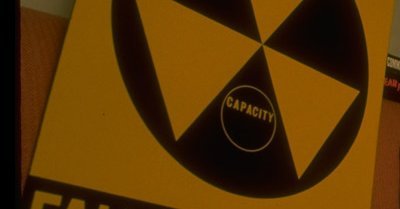From the beginning, States have been very protective of their sovereign rights over nuclear installations. It was only in 1994 that the international community agreed on a treaty to regulate nuclear safety. Even then, the treaty contained only very general (albeit important) obligations, that States could interpret differently, and there was no mechanism to force States to comply with those obligations.
In the European Union, we’ve had for a long time detailed rules on radiological protection, safety of medical exposures to radiation, shipments of radioactive substances and waste, safety of sealed radioactive sources, etc. But, even though the European Atomic Energy Community has been around since 1957, there had never been any rules on the safety of nuclear installations. For quite a while, several States actually argued that the EU could not legislate in that domain, but the European Court of Justice settled that issue.
When dealing with the safety of nuclear reactors (and other nuclear installations), it is beyond question that the subsidiarity test is met and that the EU should intervene to assure the protection of all Member States. An accident in a nuclear reactor in any Member State would concern us all.
The European Commission first proposed a Nuclear Safety Directive in 2002. The initial proposal was quite modest, but it foresaw that further Directives would be adopted to include more specific requirements. This would have allowed the Commission to progressively create EU law that went beyond the general international obligations and guaranteed a higher level of nuclear safety for all EU citizens. Crucially, the Commission would have had the power to check the functioning of national regulatory authorities in this domain.
However, the proposal was torn down until it was almost entirely deprived of merit and usefulness. Even then, it was still unacceptable to a blocking minority, and had to be dropped.
When dealing with the safety of nuclear reactors (and other nuclear installations), it is beyond question that the subsidiarity test is met and that the EU should intervene to assure the protection of all Member States.
The project resurfaced in 2007, but the blocking minority, made up of almost all the Western Member States with nuclear power plants, was still in place. They resisted the adoption of any provisions that would make more specific safety requirements than they were already subject to in international law. Certainly, they would not allow the Commission to actually supervise their nuclear safety.
This is shocking for several reasons. First, how does a State justify to its citizens that it does not want the EU to make sure its nuclear installations are safe? Second, the Western States have once again shown far-reaching double standards, since they obliged the new Member States in 2004 and 2007 to submit to specific nuclear safety requirements and have those controlled by the Commission before accession.
How could we come to this point? How can we now have a Directive on Nuclear Safety that actually says less than the existing international convention? Maybe because no one is talking about it. There’s nothing on the news. Even environmentalist NGOs have failed to follow this process effectively this second time around.
Another Commission proposal from 2002, on the safety of nuclear waste management, has still not been reborn from its ashes. There is still no EU law on that. In the entire EU, only one Member State has begun to create a definitive repository for nuclear waste.
Nuclear issues have an immense potential for drawing public attention. The safety of nuclear installations is definitely a topic around which EU citizens could rally. If we are truly interested in promoting further steps of European integration, we should seize this opportunity to raise awareness. Citizens should feel they can influence EU politics, and that EU politics matter. Here it does matter, and they (and we) can do something about it. Belgian, British, Finnish, French, German and Swedish citizens should know that their governments are keeping them from being safer, by preventing EU legislation to be adopted to guarantee a minimum level of nuclear safety in all the EU.
Chernobyl happened in a context of blind national sovereignty. When it comes to nuclear safety, we should all want someone looking over our governments’ shoulders to make sure they’re protecting us.

Follow the comments: |
|
